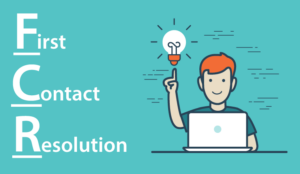In an ideal world, all call centre issues would be resolved on first call.
In the real world, this is not the case. The impact of repeat calls is clear: the need for extended talk time, leading to spiralling costs and reduced profitability.
One answer to this problem is to employ speech analytics to increase First Call Resolution (FCR). Today’s complex software makes possible sophisticated analysis of the speech of both parties – the call centre and the customer – to provide quantified and meaningful insights into why FCR is not happening, and the extent of the problem. It also helps get to the root cause of the issues, boosting return on investment.
A Speech Analytics program will identify opportunities and risk. Even large scale organisations can benefit from these results through the use of proprietary software.
Advanced analysis
Again, manual and other outmoded techniques were poorly equipped to differentiate types of repeat caller. For example, a caller who calls again on a different matter may or may not impact on FCR data: this will depend on an array of factors including the time between the calls, the relationship between the subject matter, and so on.
Speech analytics takes the guesswork and uncertainty out of this process, defining repeat callers through precise parameters. Its filters help users select the right metadata to identify repeat callers and specify time intervals between calls.
It can also identify and assess different repeat caller profiles. For example, chronic callers who again may be calling repeatedly less as a result of flawed call centre operations management than because of psychological quirks of their own.
The result is a more streamlined and effective operation where good agents can be more appropriately rewarded, and less skilled ones retrained in exactly the areas needed.
Get to the root of repeat calls
By combining existing customer transaction data to accurately identify repeat callers, and the ‘voice of the customer’ to understand where breakdowns occur, users can implement targeted process improvement.
You can use call attributes such as customer ID or ANI (automatic number identication) to identify a series of repeat calls against individual customers and extract themes from recorded interactions.
Therefore, users of the system can quickly identify multiple calls from the same customer, but they also have an automated means to listen to those calls to get powerful insights into the root cause.
Speech analytics for FCR benefits:
- Reduces talk time
- Lowers costs
- Improves service quality
- Boosts customer satisfaction
- Increases customer loyalty
- Raises revenue and profitability
Improve bottom line
Call centres depend on minimising unit cost and maximising return at the margin. Clearly, anything unbalancing this equation must be driven down: and repeat calls are a prime candidate for this.
Old-fashioned approaches attempted to tackle this problem but often achieved only limited success. Manual techniques such as call monitoring and post-call surveys were a poor use of management resource in terms of both time and money. Even worse, their results were often skewed, being based on an unrepresentative sample of the whole.
Conversely, speech analytics can easily interrogate very large numbers of calls, identifying the root causes for repeat calls through patterns such as scripting problems and process gaps. Results are presented clearly and comprehensibly, allowing management to make improvements and smooth call flow.
Related reading
- Typical uses for Speech Analytics
- Speech Analytics In Marketing
- Speech Analytics in Debt Collection
- Speech Analytics in Customer Service
- Using speech analytics to assess language proficiency
- Choosing a Speech Analytics Solution
- Recording Customer Surveys
Contributors
- David Vickery
- Jonathan Wax of Nexidia
Author: Jonty Pearce
Published On: 14th Mar 2010 - Last modified: 15th Aug 2025
Read more about - Customer Service Strategy, First Contact Resolution (FCR), Nexidia, Service Strategy, Speech Analytics
















